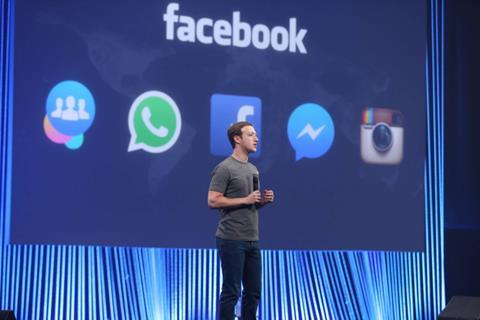- Facebook launches chatbot and news hub to ensure misinformation of Covid-19 is not spread
- EBU, BBC, FT, Reuters and CBC among broadcasters collaborating on Trusted News Initiative
- BBC DG Hall: “We’ll do everything we can, working together, to stop disinformation about coronavirus in its tracks.”

In a fight to battle the misinformation on coronavirus, organisations including Facebook, the European Broadcasting Union and the BBC have launched initiatives to tackle harmful content sharing.
In India, Facebook has launched a Corona Helpdesk Chatbot on its messenger platform to raise awareness, provide authentic and accurate information to its users in a move to expose fake news on the pandemic.
The chatbot and news hub has been launched after the Indian government issued an advisory to social media companies to monitor and remove the circulation of false information and unverified data on the coronavirus outbreak.
The government of India deployed its own officials to debunk fake news on 20 March.
Facebook vice president of global affairs and communication Nick Clegg confirmed the social media giant was combatting Covid-19 misinformation across its apps after launching the Covid-19 Information Centre which is featured on the top of its news feed in several countries and includes real-time updates from national health authorities and global organisations.
He said: “Through these efforts across Facebook and Instagram, we’ve directed more than one billion people to resources from health authorities including the World Health Organisation (WHO) – more than 100 million of whom clicked through to learn more.
“We’re also giving the WHO as many free ads as they need and millions in ad credits to other health authorities so they can reach people with timely messages.”
Users of Facebook-owned WhatsApp can also sign up to receive a daily report with the latest statistics from Covid-19 with tips on how to prevent the spread of the disease.
He added: “We’re also working directly with health ministries in the UK, India, Indonesia, Singapore, Israel, South Africa and other countries to provide similar health updates specific to those nations.
“In the last week, over 100 million messages have been sent by these organisations to WhatsApp users. In addition, we donated $1 million to the International Fact-Checking Network to expand the presence of fact-checking organizations on WhatsApp, so people can submit rumours they find directly to fact-checkers.”
More information is available here.
The firm also is working on limiting the spread of Covid-19 related misinformation including posts on false claims about cures, treatments and the availability of essential services or the severity of the outbreak across its WhatsApp, Messenger and Instagram platforms.
Clegg added: “This is an evolving crisis, so as world health officials issue new guidance and warnings about COVID-19, we’ll continue working with them to ensure people have access to accurate and authoritative information across all of our apps.”
EBU announces news initiative to tackle coronavirus disinformation
An industry collaboration of major news and technology organisations will work together to rapidly identify and stop the spread of harmful coronavirus disinformation.
The Trusted News Initiative (TNI) was set up last year by the EBU to protect audiences and users from disinformation, particularly around moments of jeopardy, such as elections. The TNI complements existing programmes partners have in place.
The partnership will now extend its efforts to identifying false and potentially harmful coronavirus information by putting in place a shared alert system.
The partners within the TNI include: BBC, Facebook, Google/YouTube, Twitter, Microsoft, AFP, Reuters, European Broadcasting Union (EBU), Financial Times, The Wall Street Journal, The Hindu, CBC/Radio-Canada, First Draft, Reuters Institute for the Study of Journalism.
Partners will be able to alert each other to disinformation about coronavirus so that content can be reviewed promptly by platforms, whilst publishers ensure they don’t unwittingly republish disinformation.
Alerts will also flag up content that undermines trust in partner news providers by identifying imposter content which claims to come from trusted brand identities or sources.
EBU director general Noel Curran said: “During emergencies of this magnitude, the need for trusted, factual, evidence-based reporting is more crucial than ever. Yet there is a tide of misinformation and bad information, driven mainly through online social platforms, which is threatening to undermine public trust and cause further anxiety for people.
“This initiative underlines the role of public service media in tackling misinformation head-on and delivering accurate content that audiences can safely rely on.”
Last summer the BBC convened a Trusted News Summit, bringing together senior figures from major global technology firms and publishing.
It agreed to collectively work, where appropriate on various initiatives including early warning systems, media education, voter information and shared learning.
BBC director general Tony Hall said: “The BBC and all our partners feel an urgent sense of responsibility to give everybody the very best, most accurate information, we can during this time of crisis. It’s vital that we all have access to the facts so we know how to protect ourselves, our friends and families.
“These are challenging times for each and every one of us. We’ll do everything we can, working together, to stop disinformation about coronavirus in its tracks.”
























No comments yet